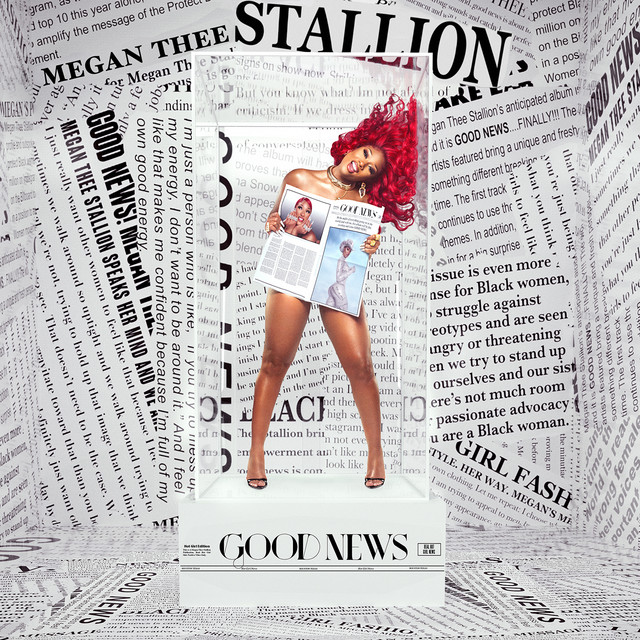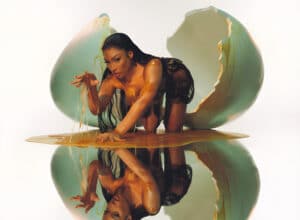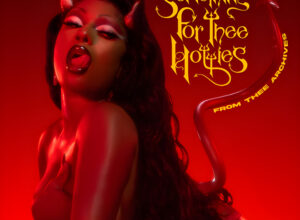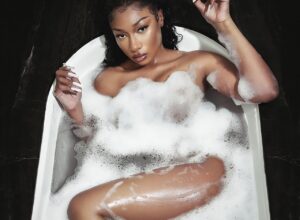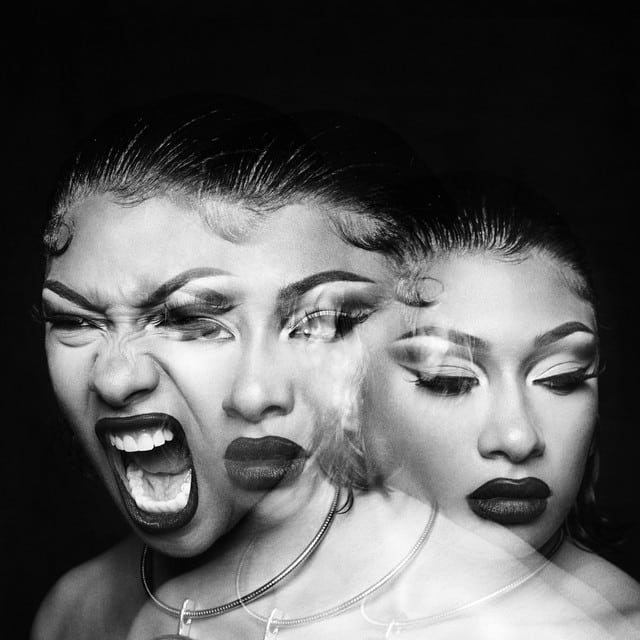Released: 2020 • Features: DaBaby
“Cry Baby” by Megan Thee Stallion, featuring DaBaby, is a bold, unflinching exploration of sexual power dynamics and confident self-expression. It talks about erotic tension, relationship games, and the nature of attraction, all focused through a female lens, highlighting the assertiveness and agency of women in these scenarios.
The opening verse by DaBaby uses a play on words – “That ain’t DaBaby, that’s my baby” – to imply a personal relationship with the female subject. He switches smoothly from lamenting her refusal to respond to his texts to boasting about his sexual prowess. The verse blends humor and sexual innuendo with a confident swagger. He even brings up legendary basketball competition to describe her physical attribute, showing off his quick wit.
In hip-hop slang, ‘crybaby’ often refers to a sexual position, and in this context, it also symbolises an emotional power dynamic where the woman has control. This song is rife with such references and the ‘real hot girl shit’ hook underscores Megan’s commitment to assert her sexual dominance, taking ownership of her narrative.
Megan’s verse then takes the reins, bringing in her explicit brand of femme fatale energy. She’s upfront about her sexual confidence, painting vivid pictures of her encounters and making it clear that she’s the one in control. The line “Damn, he probably wanna wear my hoodie” is a reversal of the common trope of women keeping their partner’s clothing as a memento, further underlining this power dynamic. She also doesn’t shy away from displaying her freedom to move between partners and marks her territory with the line, “If I give it to another nigga, he’ll hate me”. She’s making the rules, and she’s unapologetic about it.
Her lyric, “His friends and his dad hate me,” shows she’s not troubled by the opinions of others, maintaining her sovereignty in her relationships and expressing a defiance typical of Megan’s brand of empowerment. Lastly, comically dismissing a man’s unreciprocated feelings as ‘cry baby’ behavior further exemplifies her willingness to break societal norms in a patriarchal society.
Overall, “Cry Baby” serves as an anthem for sexually liberated and confident women who are unafraid to take control of their narrative, whether it’d be about love, sex, or relationships. It’s an integral piece of hip-hop’s broader conversation about gender and power dynamics.
